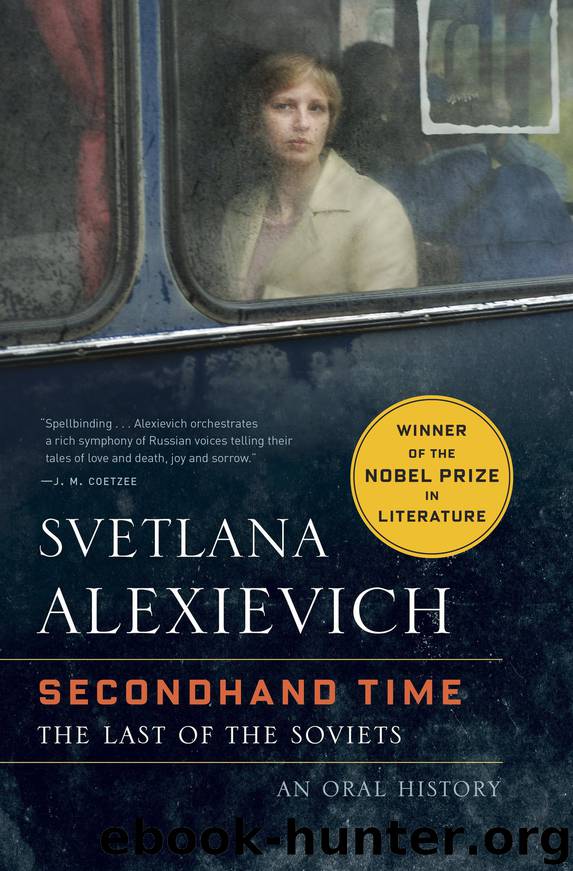

The younger generation ‘were bitterly disappointed that the Revolution and Civil War had all happened before our time’ and they share a ‘communist collective memory.’ When glasnost revealed to many what had been hidden in the archives, that story underwent a drastic rewriting, almost overnight. Alexievich’s generation was raised by those who beat the Nazis – as told in The Unwomanly Face of War – and who never let their offspring forget it. Second-hand Time, which is translated by Bela Shayevich, begins with ‘Notes from an accomplice,’ reflecting on the public story of the USSR, as seen from the inside. Maria Stepanova’s book led me to thinking about writing this Second-hand Time review (maybe as both are published by Fitzcarraldo Editions!) and, as today is Svetlana Alexievich’s birthday – for which she will be in Germany, due to health issues and her involvement with the political situation in Belarus – I thought today was a good day to read or reread her book about the end of the Soviet Union. In comparison with a future we don’t want to inhabit, what has already happened feels domesticated – practically bearable. Especially during times dominated by the dull fear of the unknown. I think the global obsession with memory is simply the foundation, the essential precondition for a different cult: the religion of the past, as we knew it in olden times a little splinter of the golden age, proof of the fact ‘that things were better back then.’ The subjectivity and selectiveness of memory means we can fix on a historical ‘excerpt’ which has nothing in common with history itself – there will be people out there for whom the 1930s were a lost paradise of innocence and permanence. Eyewitness evidence is notoriously shaky.

Memories are never set in stone and our perspective on them can change with time. Reading In Memory of Memory made me think about how we consider ours and our relatives’ recollections not only of far-off things, but also of more recent events that we have lived through.


 0 kommentar(er)
0 kommentar(er)
